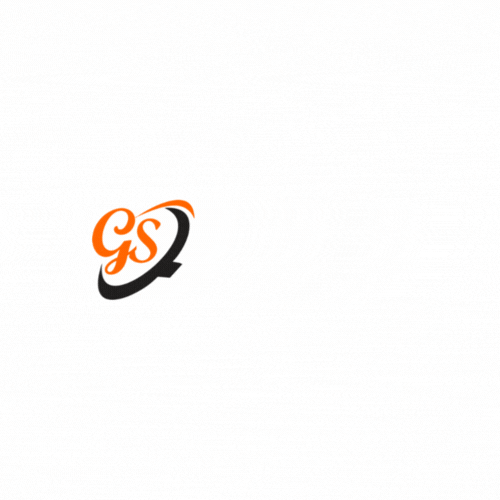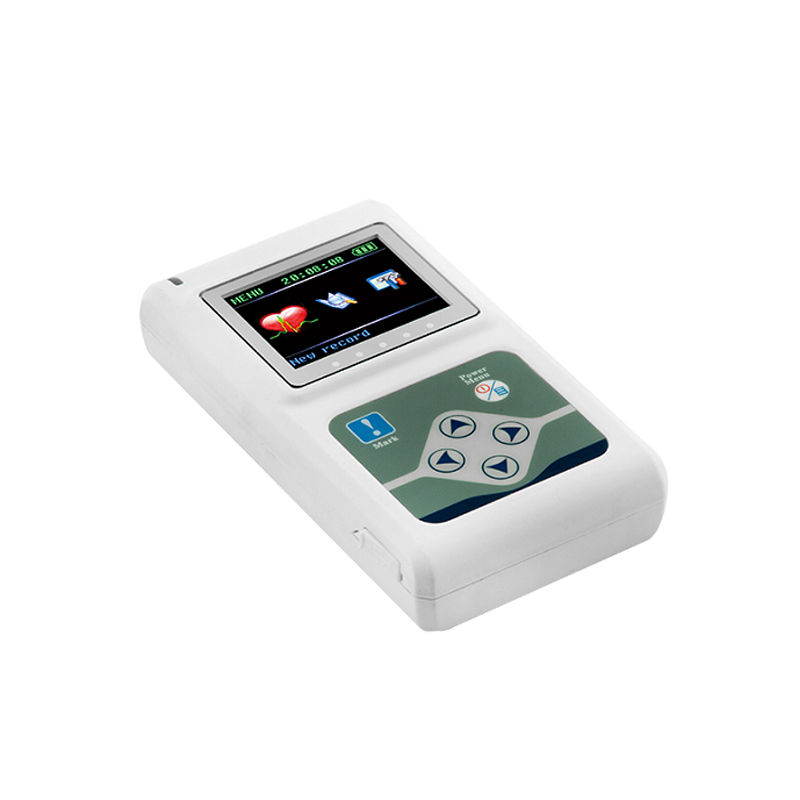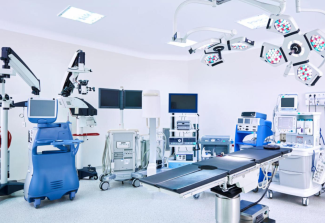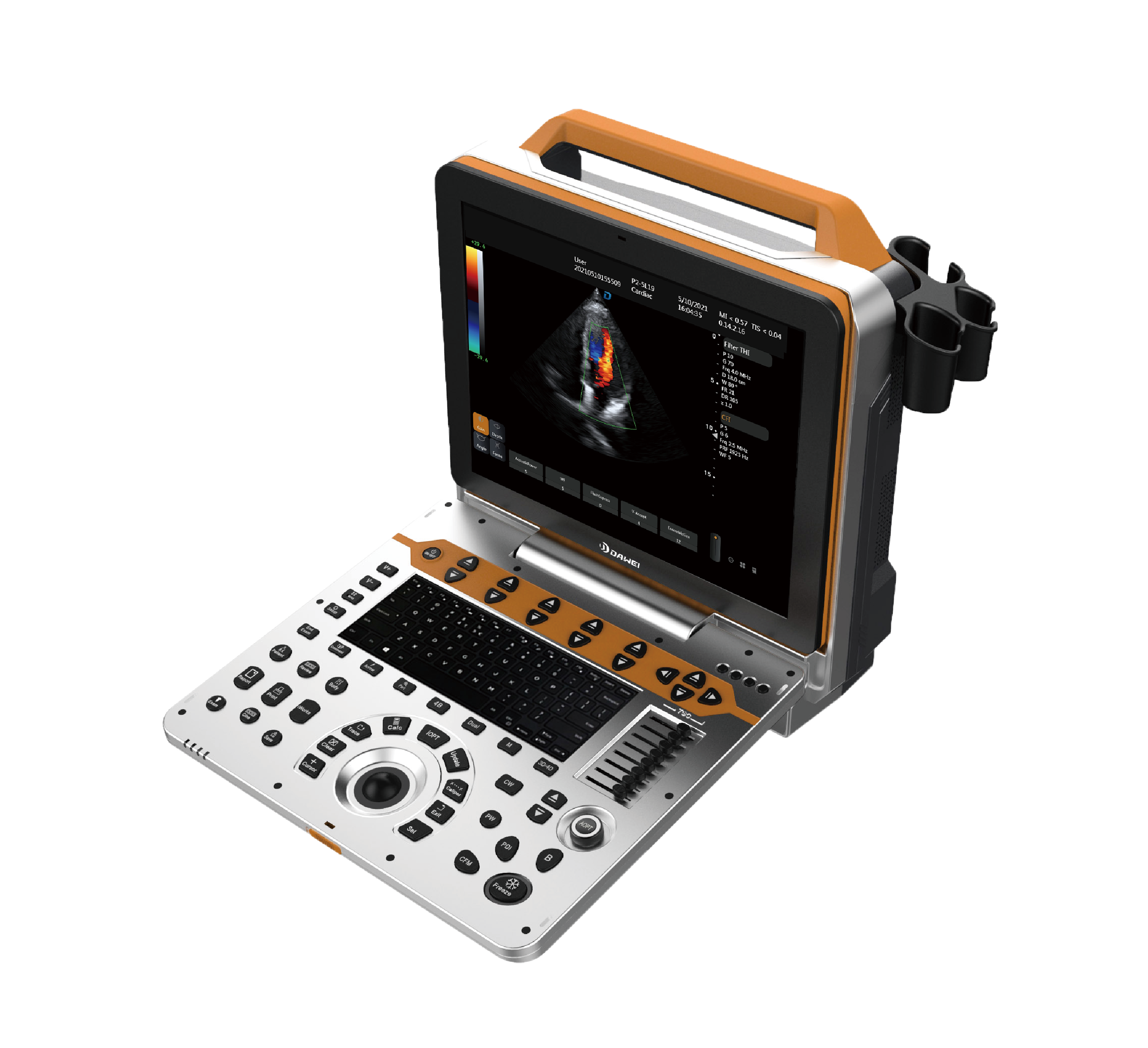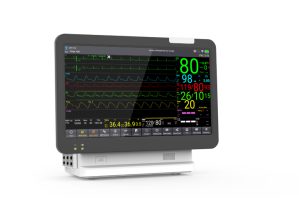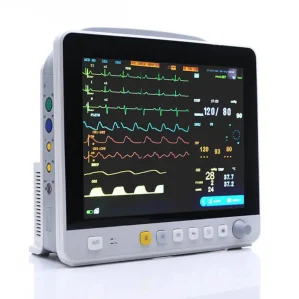ME-P60(P8Lite) Best Portable Medical Cardiac Ultrasound Scanner Machine(Echo Machine)
Description
ME-P60(P8Lite) Best Portable Medical Cardiac Ultrasound Scanner Machine(Echo Machine)
Based on MedEvolution’s new generation ultrasound platform-4.0S, P60 medical ultrasound machine has raised the industry standards to an all new level. Advanced signal transmission and reception processors provide highly sensitive and accurate echo detection. Innovative transducer technologies allow for better penetration, higher resolution, greatly enhancing your diagnostic experience.
- Abdomen
- Vascular
- Cardiology
- OB & GYN
- Urology
- Musculoskeletal
- Interventional Ultrasound
- Small parts
- Anesthesiology
- Pediatrics






High Definition and High Quality
Refers to converting the line data of a linear array probe into a trapezoidal image through coordinate transformation and interpolation, which is an extended imaging.
Freehand elastography mode
Freehand elastography can help doctors distinguish between soft/hard lesions and surrounding tissues.
Wide-field imaging
Also known as ultra-wide-field imaging. Compared with ordinary ultrasound imaging, wide-field imaging provides a new perspective for clinical diagnosis, and has a very important clinical significance for observing large lesions and the relationship between the lesions and surrounding tissues. Diagnostic significance.
Contrast imaging
The use of significantly different echo characteristics from human soft tissue, or acoustic characteristic impedance (i.e., specific acoustic impedance).
Freehand 3D imaging mode
Provides a method for generating 3D images when using standard linear array, convex array, and cavity probe inspection. The process of freehand 3D imaging is to obtain a series of frame images (refer to the below figure, move the probe in parallel at a uniform speed) apply volume rendering technology to reconstruct the volume data and display the 3D rendered image.
Volume 3D / 4D imaging mode
4D Imaging, also known as real-time 3D imaging, provides an interactive means of viewing dynamic 3D imaging. The freehand 3D imaging mode has different probe movement speeds, during 4D imaging inspection, the volume probe is fixed at one location and cannot be moved. The machinery inside the probe the component can perform stable continuous scanning of different positions by swinging, so as to obtain a series of continuous and stable frame images. It can be seen that the quality of the 4D rendered image is significantly higher than the 3D imaging with the bare hand.
Anatomical M-mode
Has only one m-sampling line, which has limitations for moving examination tissues, especially for difficult patients. The anatomical M-mode makes up for the lack of traditional M-mode for the examination of patients with difficult imaging, and it provides multiple M-sampling lines. To enable you to perform more effective motion analysis on M-mode images at different angles and positions.
Puncture enhancement
Automatic detection of the needle body, automatic deflection of the sound beam, and smart puncture enhancement technology make the puncture display in the human body more intuitive.
Tissue doppler imaging mode
Abbreviated as TDI mode, using Doppler principle to estimate tissue motion, such as the speed of myocardial motion. The TDI mode can obtain motion information and generate color-coded images of tissue motion speed.
Automatic IMT measurement
The thickness of the intima of the blood vessel is an important indicator for predicting the risk of cardiovascular disease. The automatic measurement technique of the intima can automatically measure the thickness of the intima in the near and far fields of the blood vessel and automatically optimize the measurement angle.
